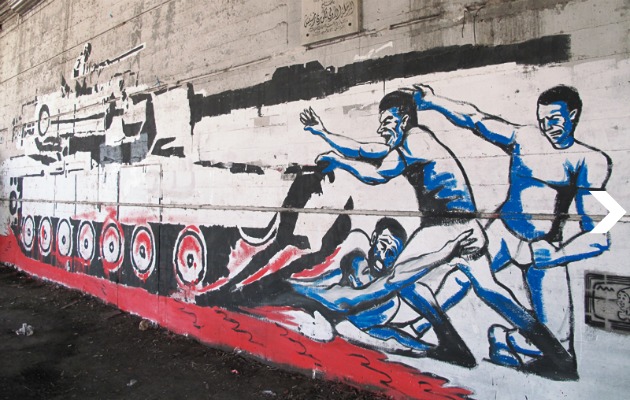Last month marked the 5th anniversary of the 2011 Maspero Massacre. During the first Egyptian revolution, almost 10,000 Copts and allies gathered in Cairo to peacefully protest the demolition of a Coptic Church in Upper Egypt. The army responded to these protests and initial clashes resulted in the death of three soldiers. TV show host, Rasha Magdy, reported that Copts were attacking the army, and that “patriotic people” should take to the streets to protect the military from the “violent crowd of Copts”. Eyewitness accounts claim that alongside mobs, the Egyptian army and security forces used riot gear, batons, live ammunition and armored vehicles to attack the protesters. However, the extent of the involvement of the Egyptian army is still contested. These clashes resulted in nearly 30 deaths, mostly Copts, and almost 300 injuries, marking this incident as the Maspero Massacre. Five years later, only three soldiers were punished with a maximum sentence of three years, and the massacre is not even recognized as one, let alone commemorated.

However, Coptic Solidarity, an organization that runs out of the US, is pushing for the anniversary of the Maspero Massacre to be officially and nationally commemorated by the Egyptian government on October 9th. One of their tactics is asking supporters to encourage their local and national media outlets to publish articles and draw international attention to the conditions of Copts in Egypt. During my conversations with Copts, many dismissed the notion that Egypt would ever commemorate violence against Copts, and declared it unimaginable and impossible.
The Coptic Orthodox Church, however, actively remembers martyrs and saints by mentioning them during liturgy or documenting them in the Coptic Synaxarium, further promoting the narrative of the Church as one of Martyrs. The 21 Copts who were beheaded by ISIS in Libya have been canonized and included in the Synaxarium as martyrs and saints, although the victims of the Maspero Massacre have not. The distinction, is rooted in the idea of will and sacrifice, where those beheaded by ISIS made an intentional decision of dying in the name of religion, whereas the victims of the Massacre were merely political protesters.
Five years later, the burden of remembering the Maspero Massacre is on the people of Egypt. Commemorations serve many functions: they honor the victims, they acknowledge past violence, and they pave the way for reconciliation between perpetrators and victims. Amidst ongoing sectarian violence in Egypt and lack of justice for past violence, the memory of the victims of the Maspero Massacre is yet to be settled. What would it mean for Egypt to acknowledge and commemorate this incident, while also promoting a spirit of unity between Christians and Muslims? Whom does the State and/or the Church label a martyr and why? What are the possibilities and limitations of healing through commemoration?
Miray Philips is a Ph.D. graduate student in Sociology with a focus on violence, collective memory, and the Middle East and North Africa. Miray’s current research is focused on how Copts in Kuwait, Egypt and the US make sense of their present-day experiences and historical memory. She is also the 2016-17 Badzin Fellow.

Comments